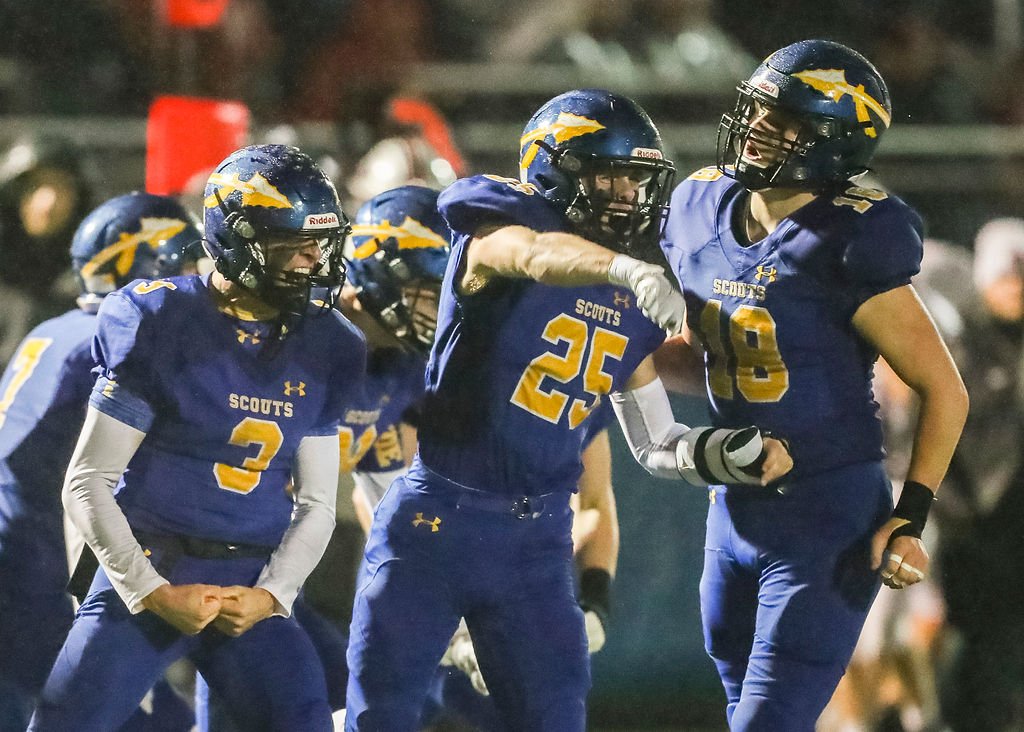
Like many parents right now, I’m in the throws of helping my high school senior navigate the college process. Even though he is our third child to apply to college, it has been a totally different experience this time around because Leo knew early on that he wanted to play football after high school. For him, the college football program at a prospective school is just as important as what he might study. But as Leo’s mom, I have to make sure that a college checks all of the important boxes–academics, football, tuition, location, etc.
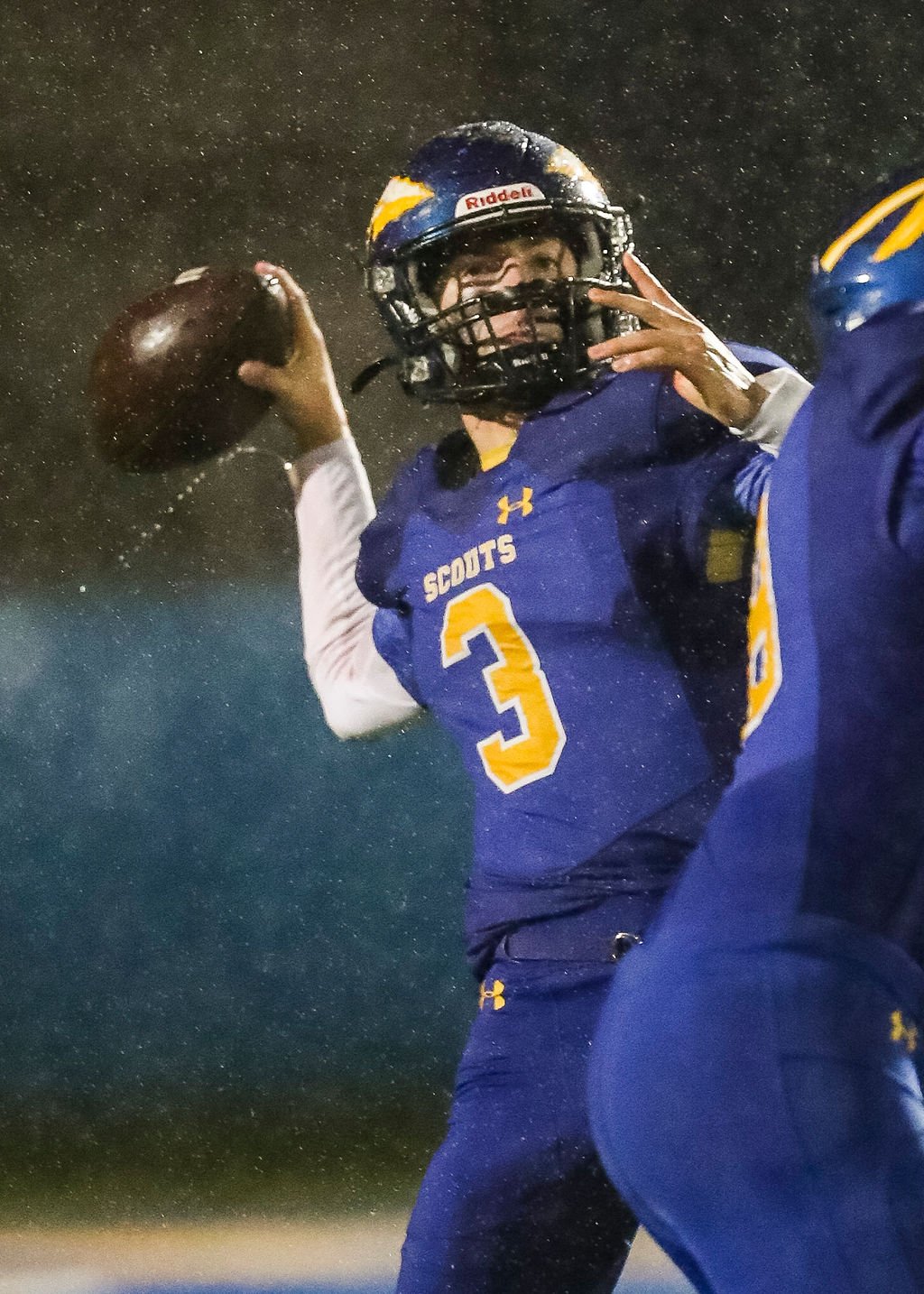
Over the years, I’ve watched other student athletes from our high school receive offers to play sports in college. Naively, I thought that these colleges just found these kids. But the truth is, after talking to the moms of some of these athletes, getting on these college radars is a process like anything else.
While we still don’t know where Leo will be next year, I’ve learned a lot going on this journey him. And many of these things…I wish I had known sooner (like most offers not coming with scholarship!). So with this in mind, I thought it would be helpful to share some of these tips on the chance you might have a child who would like to play a sport in college. Just a reminder, I’m only speaking from my experience with having a child that wants to play football, but I think some of this information might be applicable to other college sports.
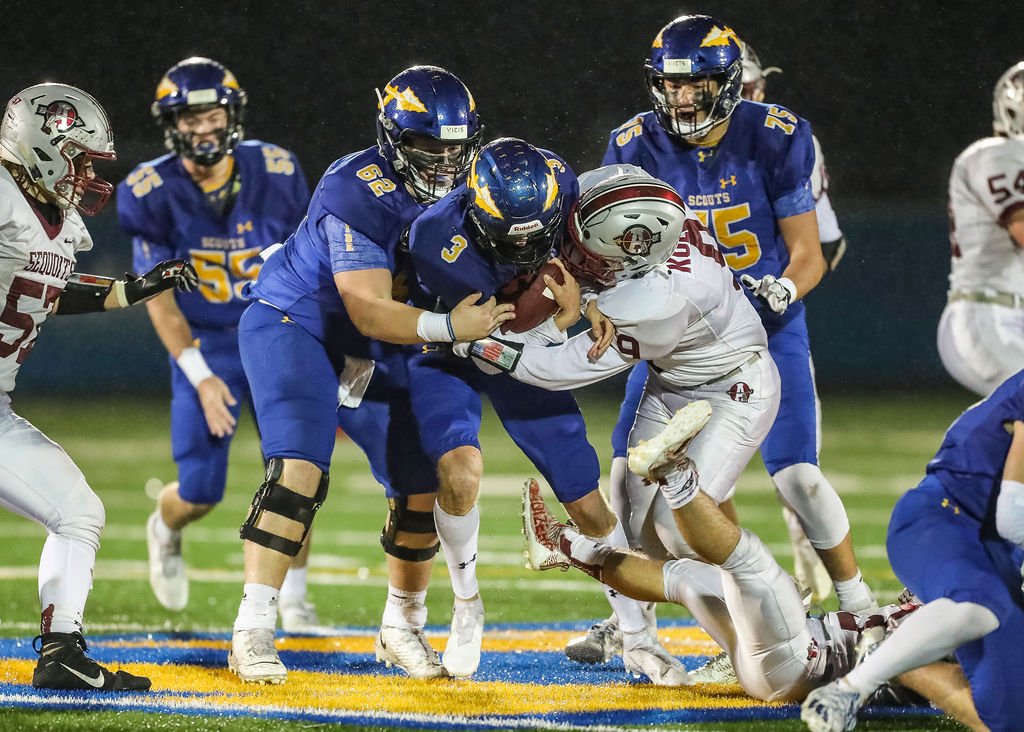
- Have a heart-to-heart conversation with your child about what they want. Playing a college sport requires a huge time commitment from your athlete and it will vary depending on the type of college program your child is considering (D1, D2, or D3). If you play a sport at a D1 (Division 1) school, it’s like having a full-time job on top of being a student. You train all year round without any real break from the program. I’ve known a number of students who could have gone D1 but chose D3 so they could have a more “normal” college experience. For Leo, he wants the challenge a D1 football program could offer.
- Meet with your child’s coach. One of the best things we did was to meet with Leo’s head football coach. These coaches have a way of getting our children to articulate what they want in a way that parents often can’t. Additionally, they know our children and their abilities and are very helpful in steering them towards a successful outcome. Finally, they know lots and lots of people in the football world. Their network with coaches is strong and active. And just like looking for a job, there is an element of “who you know” that plays a role in finding a spot on a roster. We met with Leo’s coach last summer before his senior season started. Had Covid not intervened, we would have met sooner to get this ball rolling. Honestly, if we could do it all over again, I would have scheduled a meeting after Leo’s freshman year just so I could have a better understanding of what was ahead.
- Ask about the extra paperwork. There are a few additional forms prospective college athletes need to complete for the NCAA. Usually the coaches or guidance counselors can help with these.
- Make a list of prospective schools. Then, have your child complete the football intake questionnaires that those colleges have on their websites. I think this helps schools know who is out there and it’s a formality that they all seem to ask you to complete.
- Sign your child up for a camp at a college they’re interested in. Of all the things we did, this was probably the most beneficial and I wish we had started doing these sooner. Some schools have camps that only their coaches attend, while others will have a number of different colleges on-hand to run drills and observe your player. Most camps were less than $150 to register and were 3-4 hours in length.
- Encourage your child to stay connected to the coaches. Most coaches gave their business cards to players they’re interested in staying in touch with. I think it’s a great idea and discipline for the players to follow up with the coaches after meeting.
- Get on Twitter–you and your son! Twitter is where most communication between players and coaches take place. This year, I followed all of the schools and coaches Leo was interested in, along with kids in Leo’s recruiting class. It’s easy to Google who the coaches and recruiters are for most college programs. My football IQ went up so much this year because of Twitter–I think my boys were even a little impressed with the football facts I could now share on a whim.
- Have your son keep his highlight reel current. I noticed that most players pushed out their highlight film (from Hudl) on Twitter and could tweet it to specific coaches after each game. This is a very effective way to stay in front of those who are filling the rosters.
- Tell your son to keep his grades up. Just when I thought Leo turned in everything he possibly could, he had a handful of schools from more competitive programs ask for his first semester grades. Even though it’s hard for the boys to stay on top of school while they’re in season, it’s important that they do.
- Choose a school that still works even if football goes away. This has been an underlying current in all of our conversations with Leo about football. He has to go to the best school for him…all of him. And God forbid he get injured or just decide football isn’t for him, he still needs to know that he’s at the best college to set him up for success in the future. (Thanks to a special friend for nudging me to include this last point!)
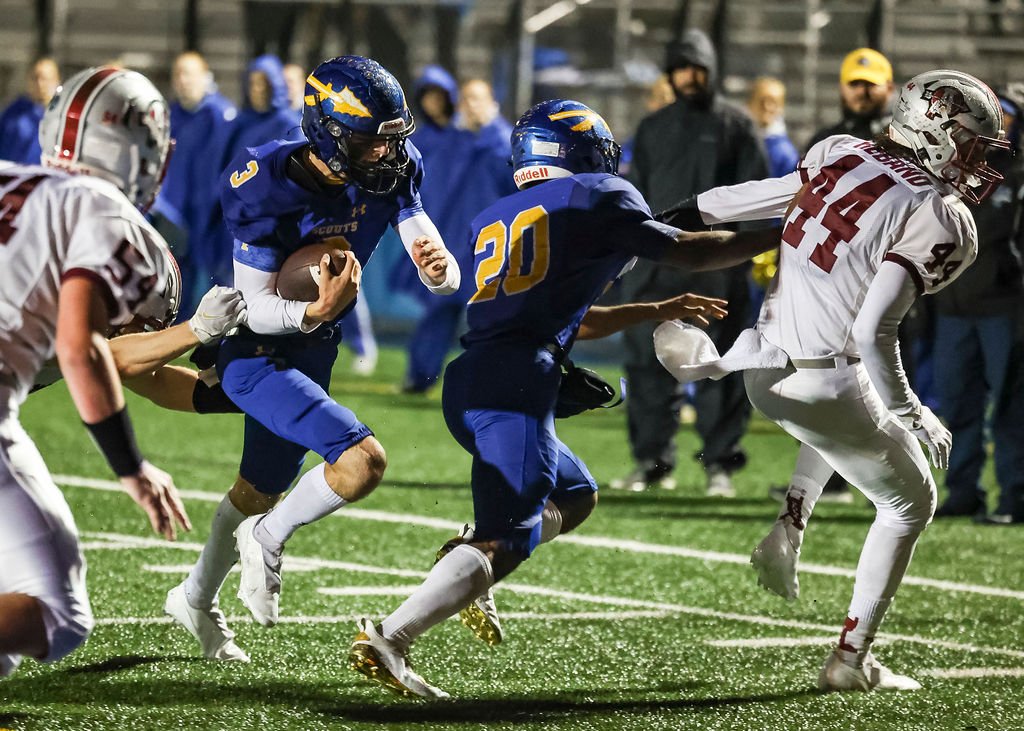
Also, just a word on the recruiting services available to help high school athletes. To make sure we didn’t leave any stone unturned with Leo, we did contract with someone late in the game to help us navigate this process since we were total rookies. In retrospect, I’m not sure it was very helpful to us. I really believe that if we had started this process sooner and had Leo participate in a summer or two more of camps (darn Covid for getting in the way!), we could have handled this confidently on our own. The recruiting business is a big one, and the reps are aggressive in bringing the athletes on to their platforms. I just encourage you to exercise caution and really know what an agency is promising before taking on that expense.
And one more thing. Coming out of high school, our kids are taught and encouraged to advocate for themselves. I support this 1000%! However, they are still young and don’t know what they don’t know. In fact, with all of this, I don’t know what I don’t know so I don’t see any harm in sometimes leading the charge in helping my son get to that next step. It really has to be a team effort.
I will update you on Leo as soon as we know how this story ends. But in the meantime, feel free to reach out to me with any questions or add any advice that you might have in the comments below.

The incredible photos in this story were taken by Joel Lerner Photography

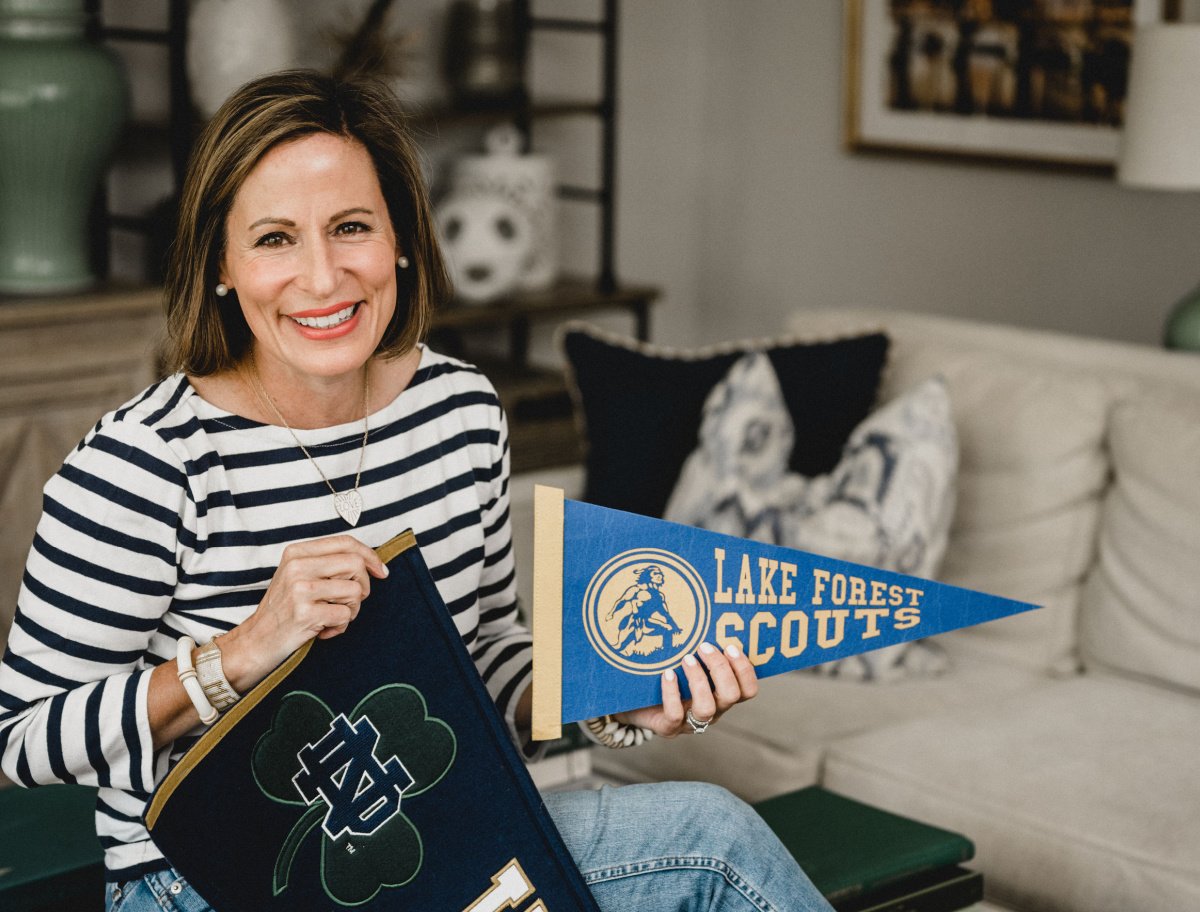

Hi Anne Marie…one other thing that really helped us, was having my sons coach reach out to college coaches from the schools that he was interested In..they in turn would make a point to seek him out whether it was at a tournament or a showcase!
Kelly, thank you so much for this! The coaches are the most valuable part of this process. I totally agree! I hope your search had happy results.
Thank you for sharing your perspective! This will be so helpful to so many people! Great advice my lovely friend. Go Leo!!
Thank you for always being out biggest cheerleader, Katie! xoxo
Hi! All very good advice. We have been going through almost exactly the same process with baseball and my son who is a senior in the city. You do need to be very proactive and go after it all the while keeping the grades up and being a great positive person helps! There’s tons of kids in the same boat and the coaches don’t always just “find you”. Perhaps they will find a “phenom” but otherwise you need to get in front of them. Videos/film to share of actual game play and drills are critical.We signed up with NCSA…but they seem more dialed in with D3 and lower (or that could be because of the pandemic and the full D1 rosters). But still a good platform to show your bio and videos that coaches seem to look at and can converse with you. Webinars to join on test taking, financial aid process, etc. And yes, start early!We were late (august/september senior year), and over our head, so we did hire a consultant firm that is very connected and also appreciates the academic side. This has really helped remove some of the stress, although not inexpensive. PTW (play to win based in Florida). Gary is great! I think they only work in baseball.Best of luck to your son!
Jane, thanks so much for sharing this. It’s actually super helpful to me to know that other parents have found the process to be very similar. Hang in there and good luck to your son. I know there is a place for all of our kids!
you too! and i meant to say, the really selective academic D3 schools requested transcripts before even considering my son. and indeed grades must be kept up until hs is over.one route to consider, for baseball at least, is a selective junior college with a high baseball focus. a player could play a lot (get conditioned and noticed by colleges or scouts) and fulfill all the courses needed to transfer into a 4 year school. we considered this for california so he could end up with in-state tuition at UCLA…best of luck to your son!
How to get started, my son is a junior in high school and does want to play football at a college level…? I look forward to hearing from you. Congratulations to you and your son for all the accomplishments and achievements you both have made thus far.
Hello Rochanda. My first piece of advice would be for you and your son to meet with your son’s high school football coach. The coaches are great at helping the boys articulate their goals and then helping them find schools to target. I’d also recommend having your son do a football camp this summer where he might like to play in college. It’s a great way for your son to see what football is like at the college level and a great way for the coaches to see what your son can do. I hope this is helpful as you get started! Good luck!